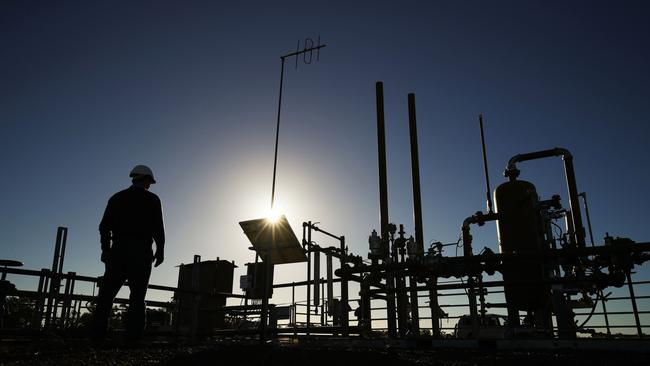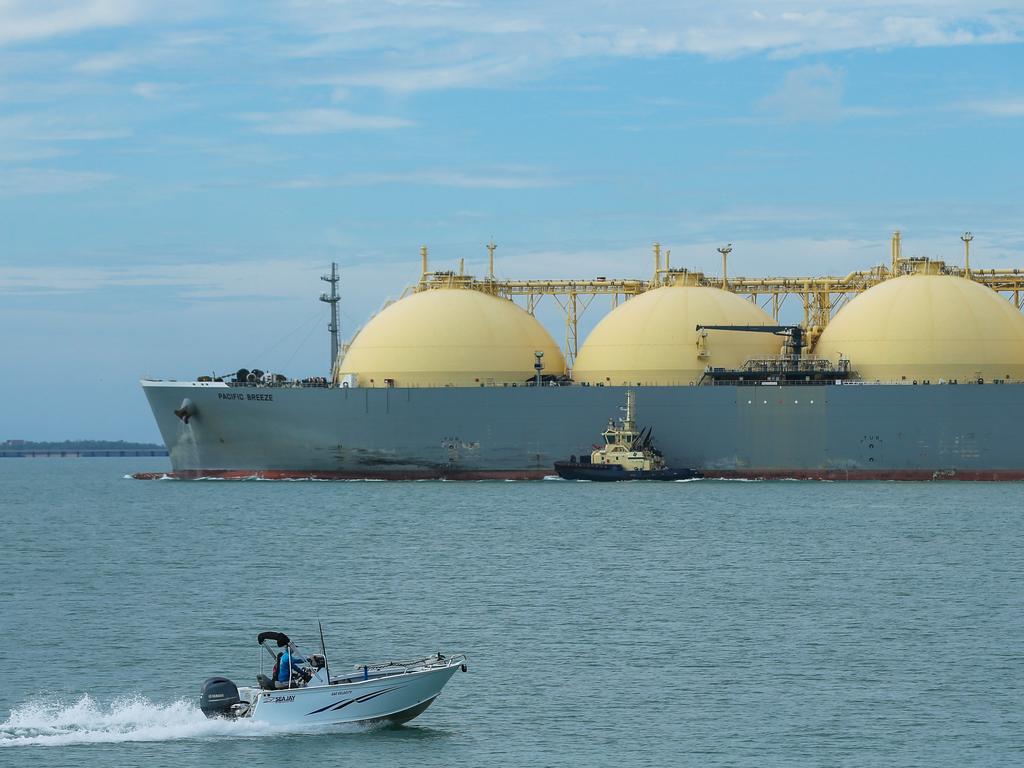Gas shortfall risk our viability and chokes our competitiveness, leading manufacturers warn
Australia’s leading manufacturers have sounded the alarm about the impact of the looming gas crunch that could send some to the wall and cost thousands of jobs.

A shortfall of gas risks the viability of Australian manufacturing and authorities must move now to unlock new supplies such as Santos’s Narrabri development or risk the demise of some of the country’s largest employers, major energy users have demanded.
One of Australia’s top manufacturers, explosives maker Orica, said high gas prices were a critical issue for the nation amid concerns supply shortages would damage the economy with little sign of significant new volumes emerging. “Our Australian manufacturing operations continue to face challenges from the unreasonable cost of local natural gas and electricity prices,” Orica chief executive Sanjeev Gandhi said.
“A Future Made in Australia is important, but it is crucial we protect existing sovereign capability now. All manufacturers in this country are struggling with high energy and raw material costs and urgent action is needed to protect manufacturing jobs in the country.”
The comments mark the latest intervention after major Australian energy players Senex Energy and APA Group, manufacturers and gas companies issued a warning to Anthony Albanese and Peter Dutton on Monday ahead of the federal election to take action to boost gas supplies.

Petrol station giant Viva Energy said the competitiveness of major gas users was being lost to rival countries. “It is very challenging,” chief executive Scott Wyatt said. “We have continued to call it out, but energy costs have continued to go up considerably at our refinery at Geelong.
“We are competing with other refineries overseas. We are competing against refineries in other countries that enjoy significantly lower costs than we do here. That is a big problem … It does threaten the long-term viability of businesses like ours.”
Australia’s largest bricks maker, Brickworks, said Australia must urgently develop significant new sources of gas, including Santos’s Narrabri project – a development that has been held up for years in reviews.
Santos last week said it could give the go-ahead for its $3.5bn Narrabri gas project in NSW as soon as next year, boosting hopes it could fill an expected supply gap later this decade, though chief executive Kevin Gallagher conceded he had little confidence on when the projects would be given the green light.
Brickworks general manager of energy Melissa Perrow said the development would be much needed, but she said the industry was gravely concerned about what would happen as soon as 2026.
The Australian Energy Market Operator has said should the country’s east coast experience a cold snap and alternative supplies of electricity wane, there will be a significant strain on the country’s grid.
Gas is used in winter for heating, particularly in homes in Victoria and ACT, and Ms Perrow said events earlier this year were a foreshadowing of what could happen in 2026. Earlier this year, Australia’s east coast was hit by a wind drought and a cold snap that saw gas prices spike, and the AEMO issue an emergency alarm.
While the market dodged the prospect of AEMO ordering large users to curtail their demand, Ms Perrow said the spectre was of grave concern to the company, even though it had contracted supplies until the mid-2030s.
“Households are not going to be disconnected but if we have a situation where AEMO has to curtail users like us then that would be extremely problematic. We are firing bricks at over 1000C, if we were directed off – and that is a question mark – it would result in our kiln cooling down. When we could get gas, we would need to reheat it before we could restart production. It would have a significant impact on our business,” she said.
The comments come just weeks after Qenos –Australia’s largest plastics maker – went to the wall, and industry leaders have warned that others could follow without urgent relief.
Qenos was believed to be purchasing a sizeable minority of its gas from the open, spot market where prices are typically prone to wild swings. The majority of Australia’s manufacturing sector will be on long-term contracts that have fixed prices, though given the rapidly depleting reserves from the Bass Strait – the traditional supplier of the domestic market – it is becoming harder to source fresh contracts.
Australia can ill-afford to undermine manufacturing, which employs nearly 1 million people - making the industry that country’s seven largest employer, and the federal Labor government has said it wants to drastically bolster new industries through its “made in Australia” program that offers significant grants to companies that want to expand.
Both Labor and the Coalition insist they understand the importance of gas to the Australian economy but the industry remains sceptical.
Under the Labor government, new developments have experienced months of delays and significant intervention designed to lower domestic prices in 2022 saw work on new developments paused as they grappled with the legal obligations imposed.
Australia’s gas industry has accused the government of taking excessive amounts of time to access applications for new developments, which indicates its tepid support for the industry.
Labor denies the claim, insisting it will not cut corners on environmental assessments.
Labor in June approved Senex Energy’s $1bn expansion after months of waiting, a development it has heralded as an indication of its consciousness to bolstering supplies.
Santos is seeking to tap some 1500 petajoules of gas reserves from the Narrabri project.
Australia is one of the world’s largest exporters of gas through LNG exports, but the country’s east coast is facing a looming crunch that could emerge sporadically next year before a consistent shortfall in 2027.






To join the conversation, please log in. Don't have an account? Register
Join the conversation, you are commenting as Logout